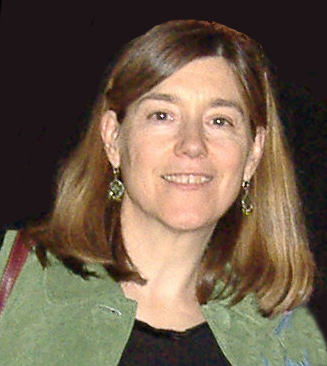Unfortunately, this virus is going to be with us for a while. How much of a while? The science is still coming in. There are still many new cases every day and sadly many coronavirus deaths. Some US states are showing up to a 25% increase in weekly cases as of June 6, 2020.
Here is some information about what we all can do to keep ourselves as healthy as possible so that if you do get Covid-19 your chances of having a mild case are improved.
What makes you high risk for severe disease?
- Anyone over 65. It is likely that the immune system is not as robust.
- Diabetes
- Obesity
- Diabesity = the common combo of obesity and diabetes
- Heart disease, coronary artery disease, past heart attack
- Hypertension if poorly controlled
- Asthma if moderate or severe; mild asthma does not appear to increase risk
- Emphysema, or any severe lung disease
- Chronic renal disease
- A compromised immune system, such as those with cancer or on chronic cancer treatments
- Some autoimmune disease treatments (MS, lupus, rheumatoid arthritis) can depress the immune system
- Hepatitis
- Pregnancy
- Men are at higher risk than women. Why? Research is ongoing but one thing that’s been discovered is men have higher quantities of Angiotensin-converting enzyme (ACE) which is found in the lungs, heart, kidneys and other organs. ACE is thought to play a role in the entry of the virus into the cells to reproduce itself. The common blood pressure medicines, known as ACE inhibitors do not appear to have an effect on this risk so continue on this medicine if your doctor has prescribed it.
Most healthy men are still low risk for severe disease.
How to avoid Covid-19 and stay well
Shelter in Place, social distance, wear a mask in public and consider wearing food handlers gloves into stores. Do this until our public health officials let us know it’s safe to loosen these restrictions.
How’s your lifestyle?
Take this time as an opportunity to take a step back and re-evaluate your health habits. Being healthier overall improves your immunity as well as cutting your risk of all major diseases: heart disease, cancer and dementia.
As a shorthand for health habits we use DESS:
D = Diet
E = Exercise
S = Sleep optimization
S = Stress reduction
Diet
There is no 1 diet that is right for everyone but there are tremendous health benefits to certain dietary principles.
- Eat organic as much as you can
- Eat a diet high in vegetables, some raw, some cooked
- Raw or lightly steamed/roasted veggies is 1 way to get a lot of fiber which feeds a healthy gut microbiome: We all have 2-3 lbs of intestinal bacteria doing good things for us (or a sick microbiome impairing our immunity and other negatives)
- Avoid SUGAR. This should be only for rare celebratory occasions
- Avoid or limit alcohol (It’s not a health food)
- Limit simple carbs like bread, crackers and everything made from flour
- Avoid fast food. It’s full of garbage toxic fats and chemical additives to give it flavor.
- Add plenty of healthy fats like olive oil, avocados, avocado oil, nuts and seeds
- Adding some fish is good, especially the small cold water fish like sardines, anchovies, mackerel, herring and wild caught salmon
- If you don’t care for fish eat some sea veggies like nori or take some kelp capsules to prevent iodine deficiency.
- Eat organic and grass-fed animal protein. Smaller quantities are best for most people.
- Add high Potassium food like avocados and green bananas. Covid-19 depletes potassium
Exercise
- Move every day: Dance, Walk, Skip!
- Optimal to do some strength training and some moderate to intense aerobics depending on your physical strength and ability.
- Pilates or Yoga can be good strength training. Weight training is also a good option.
- Walking uphill, biking uphill, and jogging are good aerobic exercise. Use a spin bike or an elliptical if you cannot get outside.
- Intensive exercise strengthens the lungs, prevents heart disease, improves brain function and helps prevent Alzheimer’s.
Sleep
- Your brain and body need at least 7 hours of sleep, 7 1/2 or 8 hours is best.
- Your brain can clear certain toxins only during deep sleep.
- Sleep is very important for your immune system as well as prevention of heart disease, diabetes, cancer and dementia. Sleep has tremendous healing potential.
- I highly recommend these books: WHY WE SLEEP by Matthew Walker PhD, and THE SLEEP REVOLUTION by Arianna Huffington.
Stress reduction
- If you meditate and have done so for a good while that’s a great habit to continue.
- For some vigorous exercise or yoga is calming and lowers adrenalin and an overactive nervous system.
- If you need some help with anxiety and stress during this pandemic you can try a device called Inner Balance by HeartMath, used with an App. I like it because it’s so easy to learn to use and so easy to succeed in only 10 to 15 minutes a day. There is more than 20 years of research supporting this technique.
- Don’t isolate yourself! Keep in touch with friends, family and community to both give and receive support.
For mild Covid-19/Flu symptoms:
Contact your primary care doctor if you have a fever of 101 or higher, are short of breath, or have any significant symptoms. Do not ignore chest pain or stroke symptoms as these can be Covid 19 or another serious problem. Do not be afraid to go to the ER. They have careful infection prevention protocols in place.


